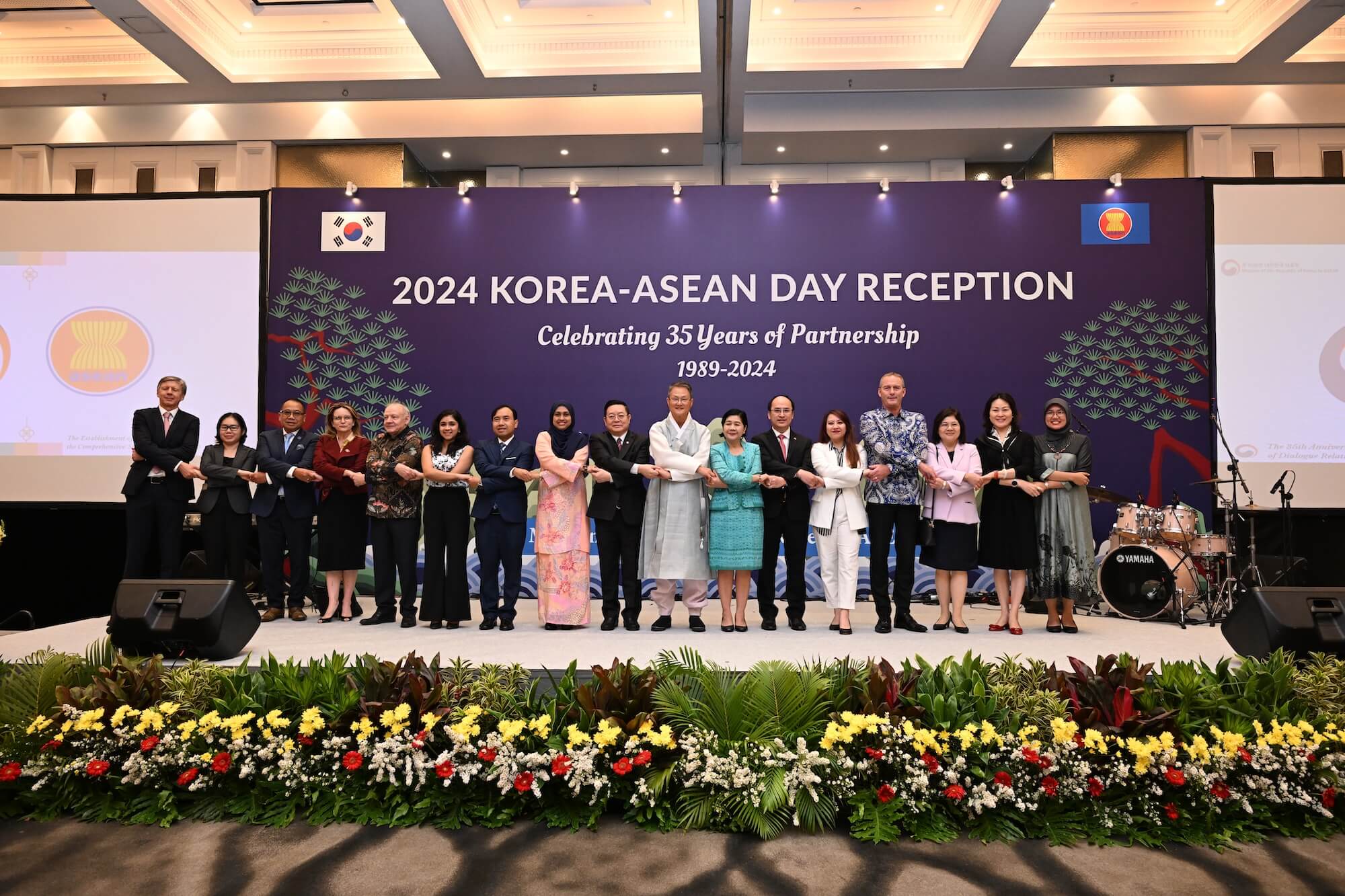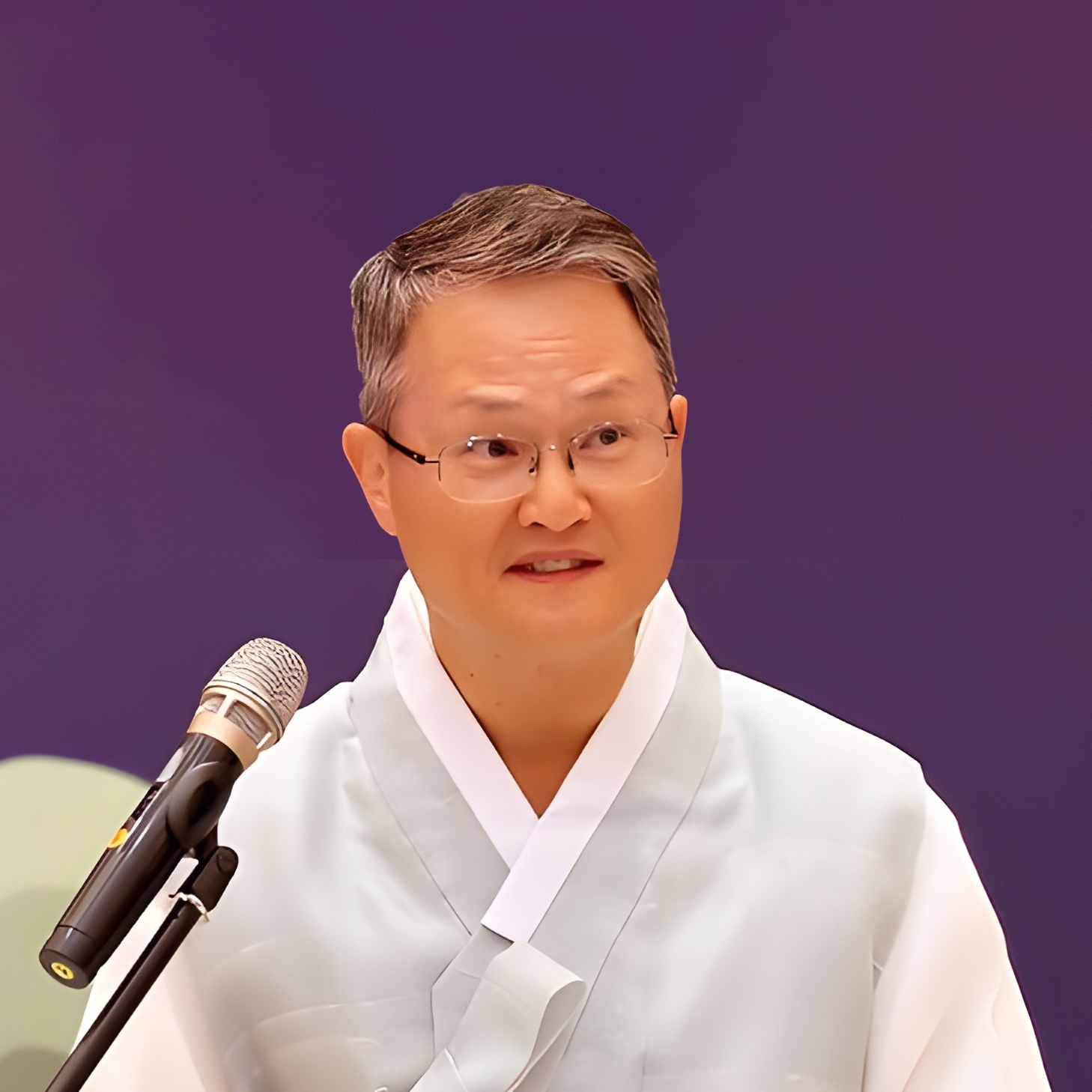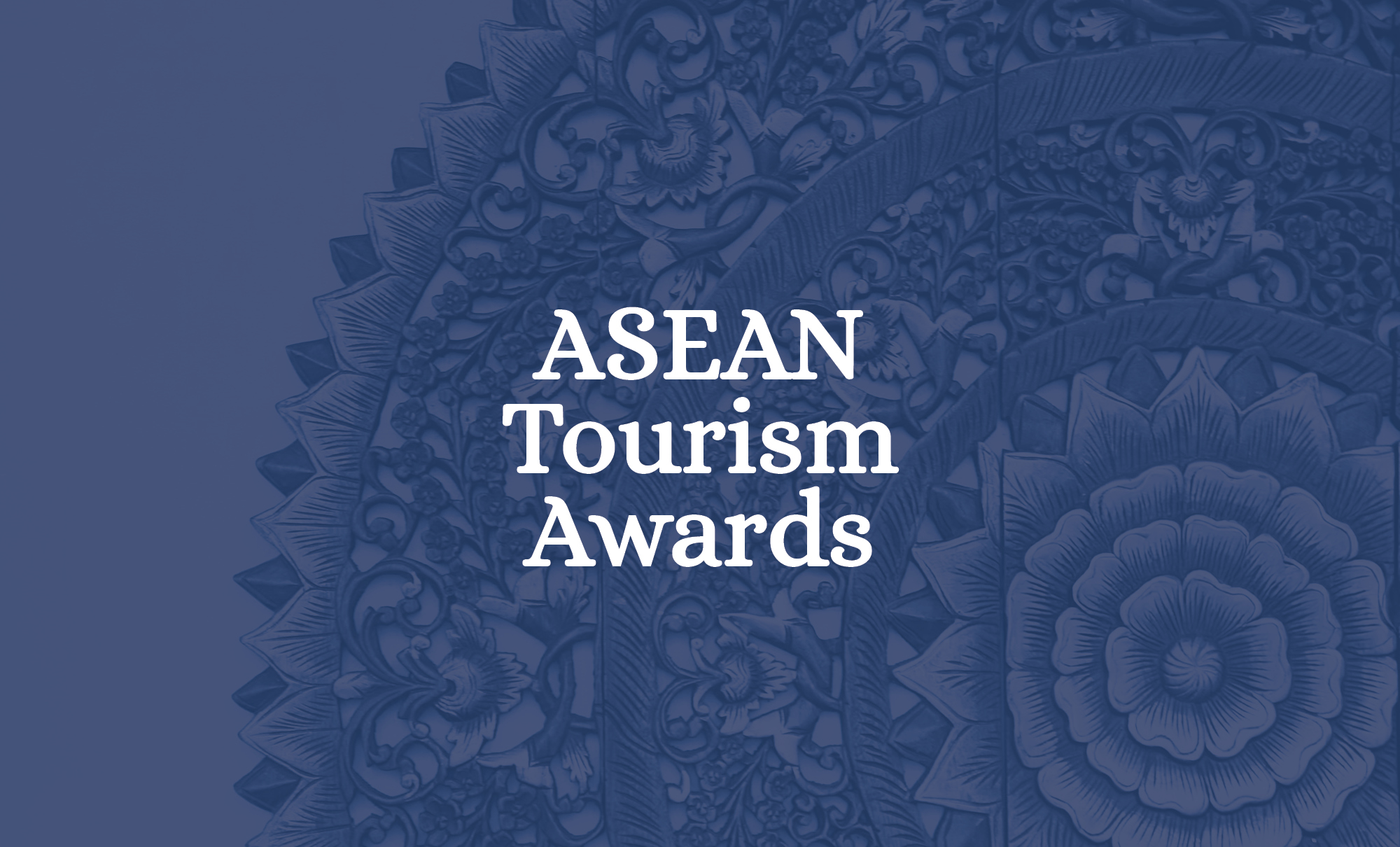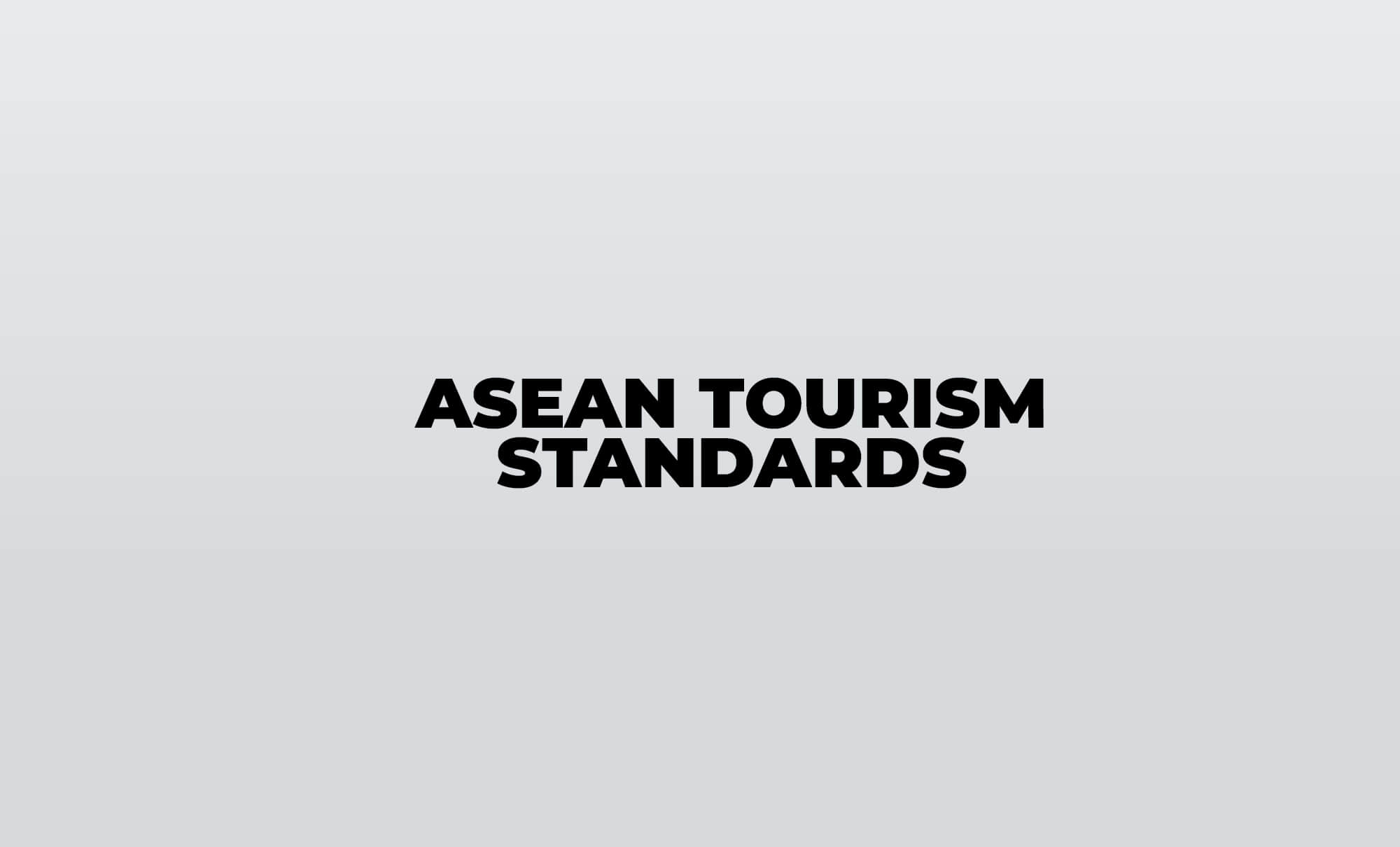




This year marks the 35th anniversary of the ASEAN-Korea dialogue relations. The Republic of Korea established a Sectoral Dialogue Partnership with ASEAN in 1989 and was accorded full Dialogue Partner status by ASEAN in two years, in 1991. Upon celebrating the 35th ASEAN-ROK anniversary this year, I am happy to say that we have taken great strides forward in our mutually beneficial partnership encompassing all areas of the ASEAN Community, including the political, economic, and socio-cultural pillars.
ASEAN-Korea Summit, the highest level of engagement, has been held yearly since 1997, back to back with the annual ASEAN Summit and the Related Summits. Furthermore, the Republic of Korea has hosted three Commemorative Summits with ASEAN, in Jeju in 2009 and Busan in 2014 and 2019, respectively.
On the economic front, the trade volume between ASEAN and the ROK increased from 8.2 billion US dollars in 1989 to 187 billion US dollars in 2023, a 23-fold increase in the last 35 years. When it comes to foreign direct investments from Korean companies to the ASEAN Member States, the figure is remarkable as the amount has increased by 80-fold during the same period, from 92 million US dollars in 1989 to 7.2 billion US dollars in 2023. As of today, ASEAN is Korea’s second largest trading partner, and Korea is ASEAN’s fifth-largest trade counterpart. ASEAN is Korea’s second largest foreign investment destination, and Korea is ASEAN’s 6th largest source of foreign direct investments.
The Republic of Korea is also a proactive and dynamic dialogue partner in supporting socio-economic development and narrowing the regional development gap. ASEAN is one of the regions that benefited most from the ROK’s official development assistance, as more than 800 million US dollars of development aid arrived in ASEAN in 2023.
Building upon our robust partnership over the last 35 years, we believe that Korea and ASEAN still have much more to achieve by expanding and deepening our cooperation. Geared by the vibrant economy, holding so much potential to be unlocked, the convening power, the strong commitment to dialogue, and experience in conflict prevention, ASEAN continues to embrace an ever more significant role in promoting peace and prosperity in the region.
The Republic of Korea, having developed an advanced economy and democracy from the ashes of war, is now poised to play a more active role in promoting freedom, peace and prosperity in the region and beyond, in line with our Global Pivotal State Initiative, guided by our Indo-Pacific Strategy. Together, we can better tap into our future potential in emerging areas such as AI and non-traditional security matters and address ongoing global challenges for the betterment of our people.
Against this backdrop, President Yoon Suk Yeol announced the Korea-ASEAN Solidarity Initiative (KASI), our regional strategy exclusively tailored to ASEAN, at the 23rd ASEAN-ROK Summit in Phnom Penh, Cambodia in 2022. One of the main goals of the KASI is to suggest the establishment of the ASEAN-Korea Comprehensive Strategic Partnership.
President Yoon made a formal request at the 24th ASEAN-ROK Summit in Jakarta, Indonesia, in 2023. Finally in Vientiane, Lao PDR, last month, our leaders adopted the Joint Statement on the Establishment of the ASEAN-ROK Comprehensive Strategic Partnership and declared to “establish an ASEAN-ROK Comprehensive Strategic Partnership that is meaningful, substantive and mutually beneficial, on the occasion of the 35th Anniversary of the ASEAN-ROK Dialogue Relations, heralding a new era of deeper cooperation in our relations.”
Upgrading our partnership is not only a symbolic nomenclature but it is also followed by concrete actions. The ASEAN-Korea Cooperation Fund (AKCF), launched in 1990, started with Korea’s annual contribution of 1 million US dollars and has increased significantly to over 20 million US dollars last year. As of September 2024, the AKCF supports 31 ongoing projects with an aggregated budget of 127.6 million US dollars. The increased figure also meets the expected quality of the projects. Small-scale and one-off projects have been incrementally transformed into multi-year programmes aiming to achieve long-term policy goals envisioned in the ASEAN-Korea joint statements and ASEAN’s regional integration endeavours. Currently, the AKCF supports various programmes in priority areas such as education and training, culture and tourism, economic resilience, environment, safety and peace, and public health.
One noteworthy example is the TEAM (ASEAN-ROK Technical and Vocational Education and Training for ASEAN mobility), which, with a total budget of 6.9 million US dollars for three years, consists of three components: research on the ASEAN labour market and TVET programmes, a mobility programme for TVET teachers and practitioners, and the improvement of TVET certification standards in CLMV (Cambodia, Lao PDR, Myanmar, Viet Nam) countries. In particular, the mobility programme for TVET teachers and practitioners has enabled 500 trainees from across the region to visit various ASEAN Member States and complete vocational training in five priority areas—automotive maintenance, construction, computer and information technology, electronics, and hospitality. This programme is designed to enhance human connectivity and bridge gaps among the ASEAN countries, where investment in human resources is vital for economic and socio-cultural development, as has been the case with Korea.
The AKCF also plays a vital role in addressing global challenges such as climate change and achieving Sustainable Development Goals (SDGs). For instance, the CASA (Clean Air for Sustainable ASEAN) aims to support the ASEAN Member States in mitigating air pollution and its negative impact on citizens’ health through various political, scientific, and technical means. The Korea-ASEAN Methane Reduction Cooperation (AKCMM), launched this year with a budget of 20 million US dollars under the Korea-ASEAN Methane Reduction Partnership (PARMA), is another example of the AKCF’s commitment to global sustainability.
Most notably, the AKCF contributes significantly to ASEAN’s tireless endeavours for digital transformation. The Korean government announced the KADIF (Korea-ASEAN Digital Innovation Flagship) Initiative at the 2023 ASEAN-Korea Summit to support ASEAN’s AI-led digital transformation and economic resilience. Accordingly, the AKCF is set to support five projects over five years with a total of 30 million US dollars, such as building a shared data ecosystem, creating a High-Performance Computing (HPC) data centre, organising AI development and startup competitions, establishing Korea-ASEAN Digital Academies in all 10 Member States, and developing and disseminating AI solutions in decarbonisation and digital health.
ASEAN and Korea have evolved into indispensable partners. As emerging challenges and opportunities lie ahead of us, we are committed to deepening and broadening the ties with ASEAN to realise our vital partnership for promoting freedom, peace and prosperity in the region and beyond. Marking the 35th anniversary of the Republic of Korea-ASEAN partnership this year, I believe that officiating the ASEAN-ROK Comprehensive Strategic Partnership (CSP) will serve as another milestone for us to explore ways forward for a stronger and deeper partnership of greater scope. I look forward to materialising the ASEAN-ROK Comprehensive Strategic Partnership in the years to come, in collaboration with ASEAN colleagues, to bring mutual benefit to our peoples.








